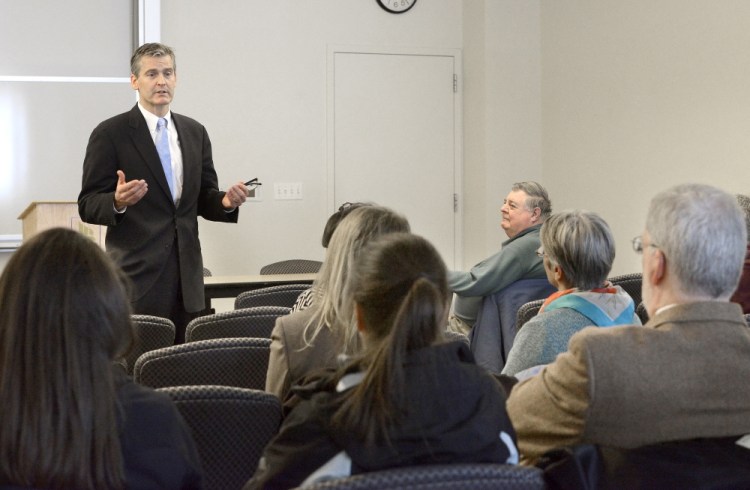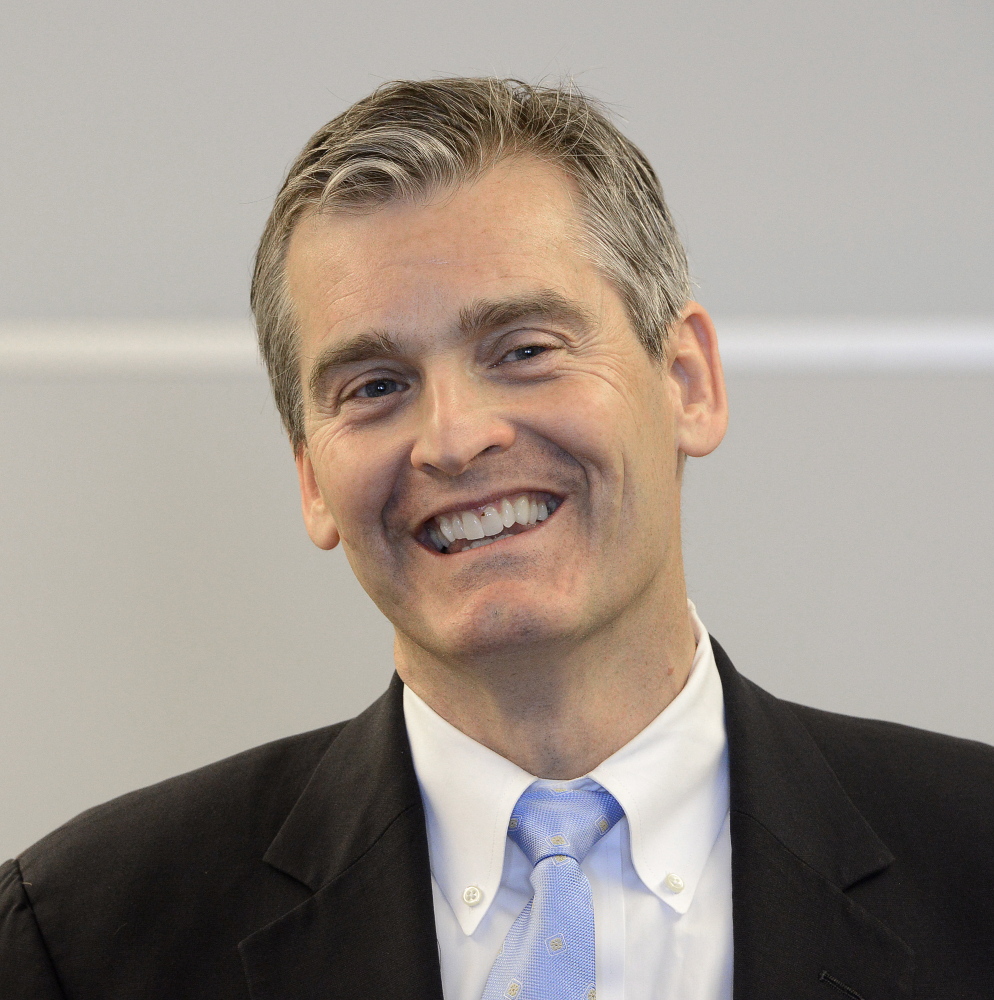Glenn Cummings, interim president of the University of Maine at Augusta and a finalist for the presidency of the University of Southern Maine, emphasized his Maine roots and his ideas for increasing revenue at the financially troubled university, pledging to break the “downward spiral” at the campus.
“We’re down in this spiral where we lose students, then have more conflict, then we lose more students,” Cummings said Tuesday during a two-day visit to the campus.
Cummings, the former speaker of the Maine House, is one of three finalists to lead USM, which has had three presidents in the last four years.
The other candidates are Harvey Kesselman, provost and executive vice president at Richard Stockton College of New Jersey, and Jose Sartarelli, chief global officer and dean of the business school at West Virginia University, who visited USM last week. Kesselman will visit Thursday and Friday.
The system trustees must approve the chancellor’s choice for president, who is expected to take office this summer.
Cumming said Tuesday he would focus on increasing revenue at USM by increasing enrollment, retention and fundraising, and noted his ties to local business, political and education officials.
“We’re kind of in a crucial moment where we reconsider how we spend every cent,” he said. In addition to having a “tough conversation” with the system chancellor to get more funding, he would also consider putting off funding depreciation at such a high rate, which the trustees would have to approve.
USM has been hit by years of multimillion-dollar deficits, falling enrollment and frozen tuition. Last year, USM cut 50 faculty positions and five academic programs to close a $16 million gap in the school’s $134 million budget for the fiscal year ending in June 2015, prompting bitter protests by students and faculty.
Cummings is already an assistant professor teaching educational leadership at USM. Before being named interim president of UMaine Augusta in September, he was president and executive director of Good Will-Hinckley and the Maine Academy of Natural Sciences in Hinckley, one of the first charter schools in the state.
Cummings served under President Barack Obama as a deputy assistant secretary in the U.S. Department of Education. As a state legislator, he chaired the Joint Committee of Education and Cultural Affairs.
“I step on to the track with my shoes already on. I really know Maine,” he said. Plus, he said he does not think of the job as a stepping stone to somewhere else. “I’d like to do this to the end of my career. I’m not trying to be chancellor, or governor.”
Cummings also said he would work closely with faculty.
“I’m a faculty member at heart,” he said. “You’re not the head of the institution, you’re the heart of the institution. You have to have the head and the heart at the center of decision making.”
Associate Professor of English Lorrayne Carroll said that was what she wanted to hear. She also wants the next president to be from Maine.
“I think that’s crucial. I think the problem with the last several cycles of very poor leadership was because people came in with very little institutional knowledge, very little community knowledge,” Carroll said. With Cummings, “we do not have to retrain on the basics.”
Cummings said much of his work would be to “tell the story” of the university to attract donors, and to attract and retain students.
Cummings has a doctorate in higher education management from the University of Pennsylvania, a master’s degree in public administration from the Kennedy School of Government at Harvard, a master of arts degree in teaching from Brown and a bachelor’s degree from Ohio Wesleyan.
USM is currently led by President David Flanagan, who was appointed to a one-year term in July, replacing Theodora Kalikow, who stepped down after two years as interim president.
Send questions/comments to the editors.




